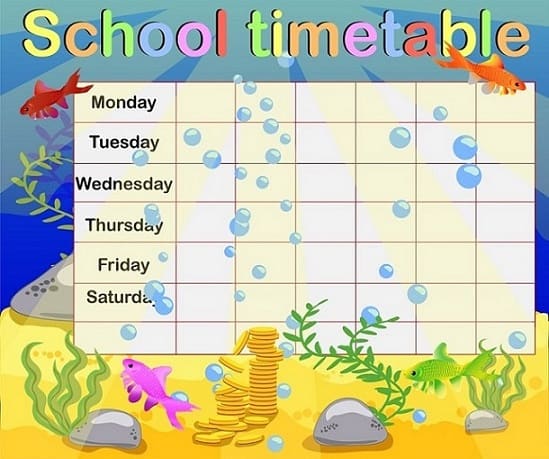Looking for an unbiased homeschool resource that doesn’t have a hidden agenda? You’ve come to the right place to learn how to homeschool in Minnesota.
To homeschool in Minnesota, a parent or guardian should become familiar with Minnesota homeschooling laws and regulations. Families must decide on a curriculum that fits their needs and be prepared for the self-discipline required to mainftain a robust academic schedule.

How to Homeschool in Minnesota
In Minnesota, homeschooling is regulated by the Minnesota Department of Education (MDE). If you want to homeschool your child in Minnesota, here are the steps you should follow:
- Notify the MDE that you will be homeschooling your child. You can do this by sending a letter of intent to the MDE. The letter should include your child’s name, address, and birthdate, as well as your name and address. You can find a sample letter of intent and more information on the MDE website.
- Develop a homeschooling plan. Your plan should include the subjects you will teach, the materials you will use, and the schedule you will follow. You should also include any goals or objectives you have for your child’s education.
- Follow the state’s homeschooling laws. In Minnesota, homeschooled children must receive instruction in certain subjects, including reading, language arts, math, social studies, and science. You must also keep records of your child’s progress and submit an annual assessment to the MDE.
- Consider joining a homeschool support group. There are many homeschool support groups in Minnesota that can provide resources, support, and opportunities for socialization for homeschooled children.
- Be prepared to adapt your homeschooling plan as needed. Homeschooling can be a flexible and personalized way to educate your child, so be prepared to make changes to your plan as needed to meet your child’s needs and goals.
It’s important to note that homeschooling can be a challenging but rewarding experience for both parents and children.
It requires commitment, organization, and flexibility, but can also provide a unique and tailored educational experience for your child.

Free Minnesota Homeschool Programs
Minnesota’s free homeschool programs offer online and paper-based courses that provide homeschoolers with supplemental studies and help them develop essential study habits. Families of all types can find something to suit their needs.
From the basics of language arts and mathematics to more complex studies like electromagnetism or computer science, there are a wide range of courses to choose from.
Courses can range from video lessons that you can watch online and move through at your own speed to those needing teacher-student contact for the best outcome.
Students can benefit from free extracurriculars, including art classes and field trips, to gain a better understanding outside of the classroom.
Minnesota’s homeschool programs can benefit greatly from these resources, providing a comprehensive education.
If you are homeschooling your child in Minnesota and need further parental assistance, check out the Minnesota Department of Education.
Joining the Home School Legal Defense Association (HSLDA) is a great way to keep up with homeschooling laws in Minnesota, as well as access webinars and articles that can aid parents in their homeschooling journey.
Between 2019 to 2020, the percentage of homeschooled students changed from 3.4% to 9%.
Does Homeschool Have to be Accredited in Minnesota?
Many families in Minnesota opt for homeschooling as an education option, although accreditation is not required. Still, some parents may choose to pursue the process to gain external recognition of the education their child has obtained.
To become accredited, one must complete a range of tasks, like filing paperwork with the school superintendent, collecting student work samples, and staying in contact with their school district representative.
Complying with these standards may seem complicated, but it can guarantee that your homeschool program meets both state and national requirements in Minnesota.
For those homeschooling in Minnesota and interested in transitioning their student to a public or private school, accreditation here can make the transition smoother due to established standards.
67% of the homeschooled students successfully graduate from college.
Minnesota Accredited Homeschool Programs
For accreditation, homeschools must provide proof of enrollment and attendance, retain grade records, administer approved annual tests, have a supervising teacher with at least a high school diploma or equivalent, and keep up with mandated curricular changes.
Private schools with accreditation must include in their admission policies a statement of compliance with applicable laws and regulations to remain compliant with state compulsory attendance laws.
An accredited homeschooling program allows parents to provide their children with a quality education in the comfort of their own homes.

Create a Designated Learning Place
Homeschoolers should have a specific area set aside for learning, to help establish a daily routine and provide an environment where their child can concentrate on schoolwork.
A dining table is an ideal spot for studying. It’s easily cleared off at the end of each day which allows it to be used for eating as well.
You can also provide your child with their own desk in their bedroom for added privacy and the opportunity to decorate it. Whatever you decide, be sure to create an environment that helps them focus on learning.
Over 300 million students were homeschooled as a result of the COVID-19 pandemic.
Stay On Track with a Daily Schedule
Sticking to a daily schedule for homeschooling has many advantages; here are some of them:
- Establishing a daily routine can help homeschoolers prioritize tasks, complete more in less time, and improve productivity. Families with multiple students or other outside commitments may particularly benefit from this strategy.
- Effective time management begins with planning. A daily schedule makes it easier to keep track of what needs to be done and when, and prevents feeling rushed or overwhelmed. Allocating specific blocks of time to tasks can help your family stay organized.
- Homeschooling can provide a sense of structure and regularity, especially beneficial for kids accustomed to attending a traditional school. This can make them feel safer and more prepared to learn.
- Families can benefit from daily schedules to stay accountable and meet their homeschooling objectives. This is important for those who tend to be easily distracted or delay their tasks.
- Having a daily schedule in place can facilitate better communication among family members, helping to avoid misunderstandings and building a stronger bond between them.

Ease Into It
Homeschooling for new parents can be a big shift, so it’s crucial to not apply excessive pressure from the start. It is best to ease into this transition and move forward at a steady pace.
Homeschooling parents can begin with just a few basic supplies and then build on their resources as they get more confident with the homeschooling process.
When it comes to homeschooling, there are numerous options, so you should find one that works best for your family. Don’t be afraid to venture out and experiment with different techniques; the less stressed you feel, the more successful your learning experience is likely to be.
Regardless of the educational level of their parents, homeschooled students score between 80% and 90%.
Involve Your Child in Setting Learning Goals
Involving your child in homeschool assignment planning and curriculum scheduling is important for several reasons:
- Offering students a sense of importance and ownership in their education will provide them with motivation and boost engagement.
- Involving them in the homeschool process will help them feel that they are part of it, rather than it being done to them.
- Getting your child involved in the homeschooling decision-making will give you a better understanding of their likes, talents, and shortcomings; allowing you to modify the learning environment to better accommodate them.
Generally, having your kid involved in homeschooling planning is key to a successful experience for everyone.

Explore Other Ways of Learning Outside the Classroom
Homeschooled kids have an advantage as they can explore many educational possibilities not found in a regular school. This helps them gain a diverse range of knowledge and experience, resulting in a more comprehensive education.
In many cases, homeschoolers benefit from strong connections in the community. These relationships can open doors to new learning opportunities, such as classes and workshops taught by experts or members of the community.
Parents who homeschool their children should seize these chances to broaden their kids’ education.
Homeschooling families can give their children a very enriching education by exploring different learning techniques.

Reach Out to Other Homeschool Families
Homeschooling can be difficult, especially for families without a support system. Luckily, there are various ways to make connections with other homeschoolers and build a community. One way is by connecting with local homeschooling organizations.
Homeschool groups can provide emotional support, practical advice from experienced homeschoolers, and opportunities for field trips and social interactions.
Joining an online forum or Facebook group is an excellent way to network with other homeschool parents.
Joining a parenting group can be helpful for exchanging resources, asking questions, and obtaining advice from parents who have the same experiences.
Making connections with other homeschooling families can help parents lessen the feeling of isolation and build a supportive environment for their kids.
When educated at home rather than in public schools, boys do 44% better on reading examinations.
Can Homeschooled Students Play Sports in Minnesota?
The Minnesota Legislature has declared that homeschooled pupils have the ability to get involved in public school sports. This can be advantageous for several reasons. To begin with, it gives them the occasion to mingle and connect with their classmates. Secondly, it enables them to remain physically active and involved.
Thirdly, it’s a great way to learn teamwork and build leadership qualities. Lastly, they can gain knowledge of the concepts of competition and develop skills on how to win and lose with dignity.
Homeschooled students can reap the rewards of extracurriculars from participating in public school sports, a great alternative to regular education.

How to Homeschool When Both Parents Work
Minnesota parents who opt to homeschool their children have to be creative with balancing work and school, as it is a difficult task.
With some ingenuity, it’s possible to work and homeschool at the same time. Let’s examine some pointers to help you achieve it.
Prior to February 2020, just 68% of parents who had homeschooled their children said it had been a success.
Get Your Childcare Involved
Some parents are lucky enough to have assistance in homeschooling while they’re away at work due to childcare.
When it’s not achievable or budget-friendly for all households, one should think outside the box to devise a plan that fits everyone’s needs.

Delegate Chores
Involving your children in household tasks is an effective method to reduce the strain you may be facing between work and homeschooling. It also provides them with an opportunity to learn about responsibility.
It’s prudent to be mindful of your child’s abilities. A five-year-old probably won’t be able to do the laundry, but they can lend a hand with things like dusting or laying the table.
As they age, give your children more chores. By involving them in household tasks, you can reduce your work while teaching them essential life skills.
Before the epidemic, 69% of homeschooled children expressed a desire to continue their studies in this manner for the upcoming school year.
You and Your Spouse Work Alternate Shifts
Balancing homeschooling with both parents working can be difficult, especially if you and your partner have alternating shifts. Here are some strategies to help make it work:
- It’s important to organize your week in advance by creating a schedule that includes all of your work hours and other responsibilities. This will help you plan effectively for homeschooling.
- Make use of online materials: Utilizing online components like lesson plans, videos, and virtual excursions can be a great way to supplement your kid’s schooling when you are not able to be with them in person.
- Be flexible with your homeschooling: If your daytime commitments don’t make 9 to 3 schooling feasible, think outside the box. For instance, you can do lessons at night or at the weekend. Or, break up the day into shorter chunks of time for educational activities.
- Ask for assistance: Don’t be scared to look for support when you need it. This could involve employing a tutor or nanny to aid with home-based instruction while you are busy, or requesting the aid of relatives and friends.
- Homeschoolers should be aware that it’s okay to take breaks. Finding a balance between work and homeschooling will help ensure that commitments are met on both fronts.
Homeschooling can be a tricky task if both parents are working. But it can be done with the right amount of planning and creativity, making it an enriching experience for the whole family.

Take Advantage of Online Curriculums
Homeschooling is a great option to personalize your child’s education, yet it can be difficult to fit work and school into one schedule. To make it easier, why not opt for an online curriculum?
Structured learning programs can assist your child in their development and ensure concentration while you are away.
Furthermore, online learning can be tailored to your child’s individual requirements, making it convenient to discover a course that suits their distinctive learning approach.
In their children’s upcoming academic year, 54% of parents who were homeschooling before February 2020 were likely to do so full-time.
Assign the Child Solo Activities to Do While You’re at Work
Parents in Minnesota who teach their kids at home must find ways to keep their children entertained while they are working. One way is to assign independent curriculum projects.
Tasks such as reading assignments, research projects, and math and writing exercises may be included.
It’s essential to select activities that are suitable for your child’s age and skill level.
If your child attends childcare, ask your provider to remind them to complete their homeschooling tasks daily.
Proper planning can help your child become independent and accomplish tough tasks during the workday.

Allow Yourself Flexibility and Grace
Balancing a job and homeschooling can be difficult for parents, so it’s vital to give yourself some leniency and kindness while managing these duties.
Striving for perfection is an unattainable goal that can lead to disappointment. Focus on the successes, no matter how small, and congratulate yourself on your achievements.
Keep in mind that your kids are observing you, and will take after you. By displaying a positive outlook and openness to change, they’ll be more likely to do the same.
Balancing work and homeschooling can be difficult, but it also presents an excellent opportunity to impart valuable lessons to your children. Show them how to be adaptable and graceful in any situation, setting them up for victory down the line.
The typical cost of homeschooling is between $350-$750 per year for the parent(s).
Minnesota Homeschool Curriculum Requirements
In Minnesota, homeschooling families can pick out their own curricula while still covering required academic subjects. This enables parents to customize their child’s learning experience to match their unique needs and preferences.
Homeschooling is provided with assistance from the state, which gives parents resources and information to ensure their child’s educational development.
Furthermore, state laws stipulate that homeschooled children should be assessed regularly to guarantee that they are making satisfactory academic progress.
Minnesota offers an accommodating atmosphere for homeschoolers.

Letter of Intent to Homeschool in Minnesota
In Minnesota, sending a Letter of Intent to Homeschool to the local school district is an important step in the homeschooling journey. It communicates your plans to homeschool your child.
Writing this letter is critical for guaranteeing your child gets the right education.
Moreover, a Letter of Intent can help avoid potential issues related to your child’s education.
Submitting updated information to the school district promptly helps ensure that your child’s homeschooling is successful.
The federal government saves $24 billion in taxpayer money thanks to homeschooling.
Is the Minnesota Homeschool Curriculum Free?
Minnesota homeschooling families can access a wide variety of learning materials, like textbooks, workbooks, and instructional DVDs, through the Minnesota State Library’s collection.
Additionally, the library provides a selection of digital materials like e-books and audiobooks. Many homeschool families utilize the wide variety of free online homeschooling materials available.
Furthermore, homeschoolers often take advantage of dual enrollment programs in the state, allowing high school students to enroll in college courses without a fee.
Homeschooling can be a cost-effective choice for Minnesota families as there are plenty of free resources available.

How Much Does It Cost to Homeschool in Minnesota?
The expense of homeschooling in Minnesota depends on the family’s educational objectives and requirements. Certain families go for purchasing course materials and hire tutors, whereas others depend on free sources like libraries and internet-based learning.
Typically, homeschooling a child costs between $500 and $2,000 annually. Despite the expense, many families find that homeschooling offsets the cost of childcare and educational costs.
Furthermore, homeschoolers have the opportunity to adjust their educational spending to their financial situation.
Ultimately, the expense of homeschooling in Minnesota will depend on the specific requirements and wants of each family.
A safe environment was cited as the main motivation by 50% of parents who homeschool their children.
How Many Days Are Required for Homeschool in Minnesota?
According to Minnesota House Research, there is no state law requiring homeschooled students to attend classes for a minimum number of days or hours per week. However, most experts recommend that students maintain a regular schedule in order to receive a high-quality education.
This allows them to keep up with their coursework and receive the benefit of social interaction with their peers.
In addition, regular attendance can help identify any areas where a student may be struggling and need additional support.
Ultimately, while homeschooling offers families considerable flexibility, it’s important to ensure that students maintain a regular schedule in order to receive a well-rounded education.

Minnesota Homeschool Record Keeping
The Minnesota Homeschool Record Keeping Act (Minnesota Statutes, section 120A.22) requires each parent or guardian who elects to homeschool their child or children to keep certain records and to make those records available to their local school district upon request.
There are several reasons why homeschool record keeping is important. First, it helps to ensure that homeschooled students are receiving a quality education.
By keeping detailed records of what is being taught, homeschooling parents can be sure that they are covering all of the required subjects and providing their children with a well-rounded education.
Second, recordkeeping can help to prevent fraud and abuse.
By keeping track of attendance and progress, parents can help to ensure that their children are not being exploited by unscrupulous individuals.
Finally, recordkeeping can provide valuable information for future planning. By knowing which subjects their children have already mastered and which areas need more work, parents can make decisions about how to best meet their children’s needs in the future.
In short, the Minnesota Homeschool Record Keeping Act helps to protect students, parents, and the homeschooling community as a whole.
Here are some things that are important to keep a record of during the homeschooling years:
- Test results
- Samples of your student’s academic work
- Documentation of the type of curriculum being provided to your child
- Dialog with state and/or school officials
- Attendance records
A good rule of thumb is to save these records for at least two years or longer if required.
By ensuring that records are kept and made available upon request, the act helps to ensure that homeschooled students are receiving a quality education and that homeschooling is being carried out in a responsible manner.
Test results, extracurricular activities, and socialization were mentioned as reasons for homeschooling by 14% of the parents.
Minnesota Homeschool Graduation Requirements
The state of Minnesota does not have a specific homeschooling requirement in place for a student to graduate. Graduation standards are set by the parents as the facilitators of their child’s education. Once the student accomplishes the expected milestones set forth by the parents, they will graduate.

Minnesota Homeschool Diploma
For homeschooled students in Minnesota, earning a diploma can be an even greater accomplishment. Homeschooled kids don’t have the structure of a regular school schedule, so they have to be self-motivated and disciplined to do well. A high school diploma is a symbol of hard work and dedication.
Earning a diploma shows that they have what it takes to set goals and achieve them.
In addition, a diploma for Minnesota homeschoolers can open up new opportunities, such as colleges and scholarships.
For homeschooled students, a high school diploma is an important milestone on the road to success.
As of February 2020, at least 9 million Americans had been homeschooled at least once.
How Does a Homeschooled Student Get a Diploma?
Parents in Minnesota who homeschool their children have the unique opportunity to be the sole provider of their child’s high school diploma. This means that they get to decide what criteria must be met in order for their child to earn the diploma.
Of course, parents will want to ensure that their child meets all the necessary requirements for graduation, such as taking required courses and passing exams.
However, they also have the freedom to tailor the curriculum to their child’s interests and learning style.
As a result, homeschooled students often emerge with a well-rounded education that prepares them well for success in college and beyond.
Before COVID-19, 42% of parents said they wished their kids had more freedom to pursue their hobbies.
Are Homeschool Diplomas Valid?
The homeschooling movement has been growing steadily in recent years, as more parents opt to educate their children at home. While homeschooling can provide a number of benefits, there is one potential drawback: homeschool diplomas may not be as recognized by colleges or employers.
Some institutions may require additional testing or coursework for homeschooled students, so students should be prepared to take some tests to show their level of academics.
It’s not uncommon whatsoever for homeschooled kids to be more academically advanced than their peers who attended a public school, so in the long run, homeschoolers are quite capable of holding the advantage.
However, it is important to note that homeschool diplomas are becoming increasingly common and should be accepted by most colleges and employers.
Disclaimer
Although the information in this article was researched with the utmost integrity and sincerity, it cannot be held legally liable or expected to take the place of legitimate legal advice for your specific situation.

Trina Greenfield, Author
SmackDown Media LLC
LinkedIn
About the Author:
Trina Greenfield, the owner of SmackDown Media LLC, is passionate about providing information to those considering their educational options. Trina is a seasoned writer, content creator, and website owner with a passion for unbiased research, educational platforms for children and adults, as well as all things family-related.